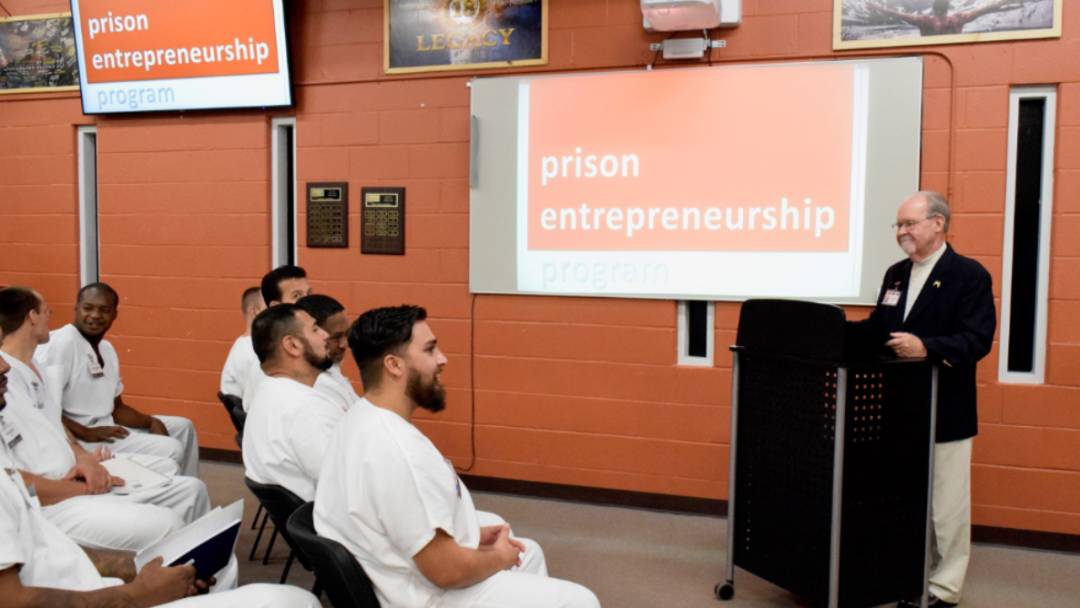
As PEP volunteers, alumni are teaching motivated inmates how to start and run a business.
Could business education help convicted criminals turn their lives around and stay out of prison?
Dougal Cameron, Jimmy Ward and Rick Price are among the alumni of Texas Tech University's Jerry S. Rawls College of Business who believe so. They have seen firsthand the power of entrepreneurship, and second chances, to change lives. As volunteers for the Prison Entrepreneurship Program (PEP), a Houston-based nonprofit, they spend time every month in Texas prisons interacting with inmates and teaching them how to start and run a business.
"Some inmates have been in prison two or three times, and then it finally dawns on them that they don't have to live that way anymore and they can do something about it. And they're empowered through this program to change their lives," said Price of Fort Worth, who volunteers at the Sanders Estes Unit south of Dallas.
Ward too volunteers at the Sanders Estes Unit, where he teaches four PEP courses: accounting, finance, human resources and business funding. A resident of Richardson, Texas, he spent 45 years working in accounting and finance in the oil and gas business.
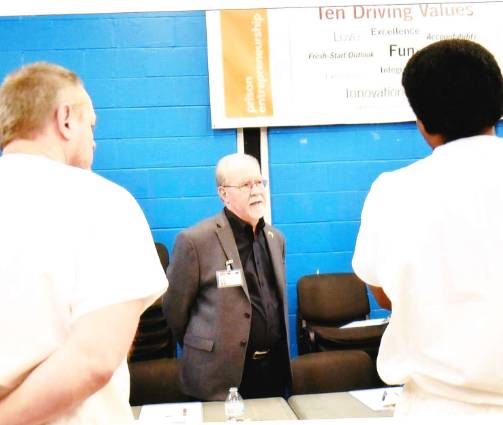 "A lot of these guys have been in prison for half of their lives, and they don't know
anything about the internet or how to handle a bank account," said Ward, who earned
his Bachelor of Business Administration with concentrations in finance and accounting
in 1970. "So just being able to relate to these guys and talk to them and feel that
they are gaining something by talking to me is humbling every time I go down there.
They want to learn and figure out how to get their lives straight again."
"A lot of these guys have been in prison for half of their lives, and they don't know
anything about the internet or how to handle a bank account," said Ward, who earned
his Bachelor of Business Administration with concentrations in finance and accounting
in 1970. "So just being able to relate to these guys and talk to them and feel that
they are gaining something by talking to me is humbling every time I go down there.
They want to learn and figure out how to get their lives straight again."
While business skills help, just as important is the socialization of prisoners that
occurs when PEP volunteers with stable lives and professional backgrounds interact
with them, said Cameron, who earned his Bachelor of Business Administration with a
concentration in accounting in 1980 and later founded Houston-based Cameron Management,
which owns, manages, leases and redevelops older office buildings. 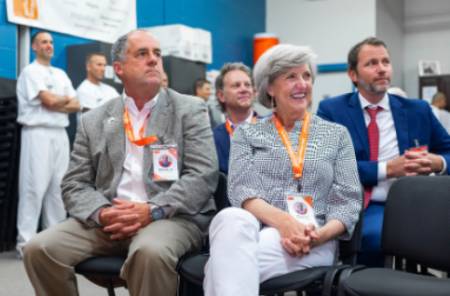 He serves on the PEP board and spends about 15 days a year "in prison" working with
the 100% male inmate population at both the Cleveland Correctional Center, near Houston,
and the Sanders Estes Unit.
He serves on the PEP board and spends about 15 days a year "in prison" working with
the 100% male inmate population at both the Cleveland Correctional Center, near Houston,
and the Sanders Estes Unit.
"It's very fulfilling because you can see such tangible results from just showing up and lending these guys your time and communication," he said.
Inmates serving the last three years of their prison sentences may apply to the nine-month
PEP program, which accepts about 5% of applicants. The program starts with three months
of work on character development. 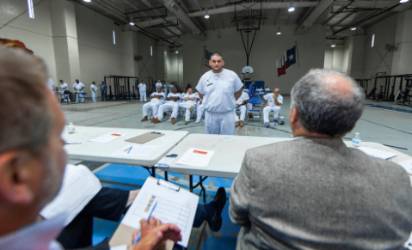 The next six months are spent learning the logistics of doing business and financial
literacy through a "mini-MBA" program using a college textbook supplemented with case
studies from Harvard University and Stanford University.
The next six months are spent learning the logistics of doing business and financial
literacy through a "mini-MBA" program using a college textbook supplemented with case
studies from Harvard University and Stanford University.
Along the way, volunteers help conduct a business plan workshop where they mentor inmates and help them assess the viability of their entrepreneurial ideas, Price said.
"I go home extremely tired after that day because you're talking to so many people and you're hearing all these different plans," Price said. "I go home tired but inspired because these men are making a huge commitment to change their lives."
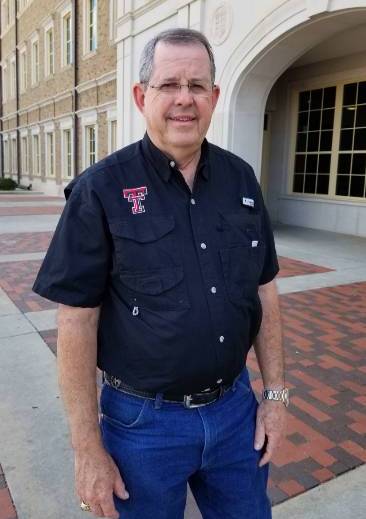 Price's commitment to helping convicted criminals comes as a surprise to some. After
earning his Bachelor of Business Administration with a concentration in finance from
Texas Tech University in 1970, he became a federal law enforcement officer for the
United States Postal Inspection Service, where for over 31 years as a postal inspector
he investigated crimes against or involving the postal service.
Price's commitment to helping convicted criminals comes as a surprise to some. After
earning his Bachelor of Business Administration with a concentration in finance from
Texas Tech University in 1970, he became a federal law enforcement officer for the
United States Postal Inspection Service, where for over 31 years as a postal inspector
he investigated crimes against or involving the postal service.
"Some people think it is ironic that I wanted to get involved in a program with inmates," said Price, who retired in 2002.
He learned about PEP in 2013 during a presentation at his church in Fort Worth, Arborlawn United Methodist Church.
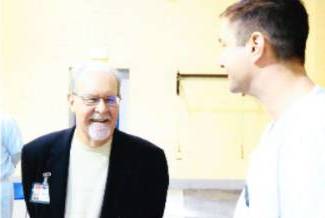 Likewise, Ward's wife heard about PEP at their church, Wilshire Baptist Church, shortly
before he retired in 2015. She asked him if he was free that following Friday. After
he answered yes, she said, "Good. We're going to prison," and that was to volunteer
at a PEP event their church was sponsoring, he recalled.
Likewise, Ward's wife heard about PEP at their church, Wilshire Baptist Church, shortly
before he retired in 2015. She asked him if he was free that following Friday. After
he answered yes, she said, "Good. We're going to prison," and that was to volunteer
at a PEP event their church was sponsoring, he recalled.
Cameron too traces his interest in volunteering at prisons to information he received at church. Many years ago, he did evangelistic work in prisons but found it exhausting working with the general prison population, he said.
"Most prisons are just bleak, dreary and sad," he said.
But he found a ray of hope shining into prisons through the PEP program, which he heard about 10 years ago when a friend of his who volunteers for the organization encouraged Cameron to get involved.
"It was so fun that I couldn't get enough of it," Cameron said.
Program participants spend about 1,000 hours in the six-month business portion of the program, which culminates with a graduation ceremony where they receive a Certificate in Entrepreneurship from the Baylor University Hankamer School of Business. Due to the high expectations of the program, only about half of participants make it that far.
"Graduation is incredible because they get to wear a cap and gown and invite up to four family members and friends to come to the ceremony," Price said. "They are so proud that they're graduating from this program. It's a very, very emotional afternoon."
By that point, most graduates have either been released or are close to being paroled, although some have more time left in their sentences and become servant leaders for subsequent PEP classes until released. Once they leave, the challenge of transitioning back into the world begins, so PEP provides them with the option to stay for one to six months at one of its transition houses just for PEP graduates.
"That's the 'secret sauce' of our program," Cameron said, noting the importance of reintroducing them to modern culture and ensuring they move forward with healthy habits.
The PEP program is most effective when volunteers convey to participants that they can get a second chance for redemption, Cameron said, "and not just spiritual redemption, but a chance at the American dream."
The quality and extent of care given to PEP participants every step of the way is evident in the program's results. PEP graduates have started over 400 businesses, said Bryan Kelley, CEO of the Prison Entrepreneurship Program. While about 50% of released prisoners nationwide end up back in prison, the recidivism rate of PEP graduates is less than 8%. Not only do most PEP graduates stay out of trouble, the vast majority of them succeed at finding jobs within a few months and are still employed a year later, and almost one-fourth of them launch businesses.
"Frequently, these guys believe they can never have that," Cameron said. "We tell them, 'It's just the opposite. We now have 2,500 graduates of our program who prove that you can have the American dream just like any other.' And that's a powerful dose of hope."
